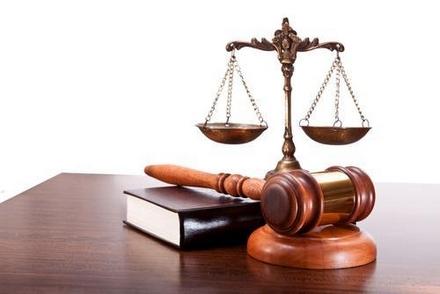TELEPHONES ANSWERED 24 HOURS A DAY
Recent Blog Posts
Murder of Three Muslims May Not be a Hate Crime
 Numerous national media outlets reported on the recent murder of three Muslim students. According to investigators, a man allegedly shot and killed the three Muslim students as the result of a parking space dispute. While a number of individuals (including the surviving family members of the deceased) want to see the shooter charged with a hate crime, others doubt that this particular type of crime fits the definition of a hate crime.
Numerous national media outlets reported on the recent murder of three Muslim students. According to investigators, a man allegedly shot and killed the three Muslim students as the result of a parking space dispute. While a number of individuals (including the surviving family members of the deceased) want to see the shooter charged with a hate crime, others doubt that this particular type of crime fits the definition of a hate crime.
Basic Principles Governing Hate Crimes
As a previous post described, a hate crime is a crime committed against another person or group of people where the crime is motivated by a bias against that person or group. That bias can be on account of that person or group’s race, religion, sexual orientation, ethnicity, or gender. Because of the nature of these crimes, hate crimes are often punished more severely than a normal crime.
Release from Custody Pending Trial Means Defendants Should Be on Their Best Behavior
 When a criminal defendant is arrested and charged with a federal crime, it often takes several months before that defendant is brought to trial. In the meantime, a court has several options regarding what to do with the defendant until the time for trial. In most cases, the court will allow the the release from custody of the defendant either on his or her own recognizance or after posting a sufficient bail bond.
When a criminal defendant is arrested and charged with a federal crime, it often takes several months before that defendant is brought to trial. In the meantime, a court has several options regarding what to do with the defendant until the time for trial. In most cases, the court will allow the the release from custody of the defendant either on his or her own recognizance or after posting a sufficient bail bond.
A release from custody, however, does not mean that federal criminal defendants have a license to do whatever they please. In fact, certain actions can land defendants in hot water with the court and, potentially, back behind bars.
Purposes and Types of Release
When a court determines whether to release a defendant from custody, it is looking at two factors: First, what type of release and/or conditions of release are necessary to ensure this defendant appears in court for future hearings, and second, how great of a danger does this person pose to the community around him or her? In evaluating these two factors, the court may decide to:
Is Mens Rea Disappearing in Federal Criminal Courts?
 In order to be found guilty of a crime, traditionally the prosecutor had to prove two things beyond a reasonable doubt: that the defendant charged with a crime both did in fact commit the criminal act (the “actus reus”) and did so while having the intent to violate the law (the “mens rea”). Requiring both a guilty act and a guilty mind has traditionally been a protection afforded to those charged with crimes and has served to focus prosecutors’ attention on those defendants who are more deserving of punishment due to their willful actions. But recent reports and stories suggest that more and more federal crimes are being created that do not require any “guilty mind” in order for a person to be found guilty.
In order to be found guilty of a crime, traditionally the prosecutor had to prove two things beyond a reasonable doubt: that the defendant charged with a crime both did in fact commit the criminal act (the “actus reus”) and did so while having the intent to violate the law (the “mens rea”). Requiring both a guilty act and a guilty mind has traditionally been a protection afforded to those charged with crimes and has served to focus prosecutors’ attention on those defendants who are more deserving of punishment due to their willful actions. But recent reports and stories suggest that more and more federal crimes are being created that do not require any “guilty mind” in order for a person to be found guilty.
The Importance of Mens Rea
Typically, criminal statutes require some sort of “guilty mindset” in order to support a criminal charge. It would be unfair, for example, to convict someone of murder when that person did not mean or intend to kill the other person. Most criminal statutes require, at the very least, some knowledge or an awareness that one’s actions might result in a certain consequence. The traditional exception was traffic infractions and local ordinance violations. Because these offenses are generally minor and result in only the payment of a fine, it was generally accepted that no specific intent to violate the traffic law or ordinance had to be proven. But now reports and stories suggest citizens are being fined, placed on probation, and (in some cases) given prison sentences without the prosecution having to show any intent to violate the law at all.
Batson Challenge: What Rights Do Criminal Defendants Have Under Batson v. Kentucky?
 Batson v. Kentucky – a 1986 case decided by the United States Supreme Court – affords both federal and state criminal defendants with an important right. Batson prohibits the prosecution from using peremptory challenges to exclude potential jurors from serving on a jury simply because of their race. This is referred to as a Batson challenge. Understanding the Court’s decision and its impact today can help potential criminal defendants understand their rights at trial and ensure they are protected.
Batson v. Kentucky – a 1986 case decided by the United States Supreme Court – affords both federal and state criminal defendants with an important right. Batson prohibits the prosecution from using peremptory challenges to exclude potential jurors from serving on a jury simply because of their race. This is referred to as a Batson challenge. Understanding the Court’s decision and its impact today can help potential criminal defendants understand their rights at trial and ensure they are protected.
The Decision in Batson v. Kentucky
The African-American defendant in Batson faced charges of burglary and receipt of stolen goods. During jury selection, the prosecutor utilized his peremptory challenge to remove six potential jurors, including all four African-American members of the jury panel. (State statutes give each party in a criminal suit a certain number of peremptory challenges, which can be used to remove potential jurors from a jury panel without requiring the party exercising the challenge to explain his or her choice.) An all-white jury was selected and Batson was convicted of the crimes. He appealed his conviction all the way up to the Supreme Court of the United States. In a 7-2 U.S. Supreme Court case, the Court held that Batson’s Equal Protection rights were violated by the prosecutor’s actions.
Double Jeopardy May Not Protect against State and Federal Prosecutions

Consider the following situation: An individual is arrested and charged in federal court with violating federal laws against animal cruelty and gambling. After he is convicted and sentenced in federal court, the state in which the individual committed these federal crimes charges him in state court with violating state laws for his activities. At first blush, this appears unfair. After all, how can this individual face charges and penalties in both federal court and state court? Yet this precise situation happened to a famous NFL quarterback. Doesn’t this situation violate the prohibition against Double Jeopardy?
Protection against Double Jeopardy Does Not Protect against All Successive Prosecutions
The protection against double jeopardy is enshrined in the Fifth Amendment to the United States Constitution, which states that no “person [shall] be subject for the same offense to be twice put in jeopardy of life or limb.” This means that, for instance, a person acquitted of a crime cannot be retried in the same court for the same crime. The Double Jeopardy clause also protects a person convicted of one crime from being sentenced multiple times (for example, a person who commits one crime cannot be sentenced to two or more prison sentences for that single crime).
Even Prisoners Have Civil Rights
 A federal suit was filed recently alleging that the St. Bernard Sheriff’s Office in Louisiana violated the civil rights of a prisoner under its care. The suit was filed by family members of the deceased and on behalf of the deceased’s infant daughter. The deceased had been diagnosed with a rare blood disorder that can cause blood clots to form in blood vessels throughout the person’s body. The suit alleges that the 19-year-old prisoner was found unresponsive in a cell in the early morning of April 1 and, despite treatment, was pronounced dead. It was later determined that she had died of a blood clot. The suit alleges the sheriff’s office failed to provide the deceased with proper medical treatment, including prescription medication.
A federal suit was filed recently alleging that the St. Bernard Sheriff’s Office in Louisiana violated the civil rights of a prisoner under its care. The suit was filed by family members of the deceased and on behalf of the deceased’s infant daughter. The deceased had been diagnosed with a rare blood disorder that can cause blood clots to form in blood vessels throughout the person’s body. The suit alleges that the 19-year-old prisoner was found unresponsive in a cell in the early morning of April 1 and, despite treatment, was pronounced dead. It was later determined that she had died of a blood clot. The suit alleges the sheriff’s office failed to provide the deceased with proper medical treatment, including prescription medication.
Prisoners Have Rights, Too
Just because a person is incarcerated does not mean he or she does not have rights. Even while serving a jail or prison sentence, the entity that has custody over the prisoner must ensure these rights are respected. These rights include:
Congress May Attempt to Reform Civil Forfeiture Laws
 A frequently overlooked consequence of federal criminal charges is civil forfeiture. In fact, a person does not even need to be charged with federal crimes in order to find his or her property subject to seizure by state or federal law enforcement agencies. Civil forfeiture laws are, in theory, designed to prevent a criminal from profiting from his or her criminal acts. For example, a drug dealer who uses a particular vehicle to transport drugs into and out of Illinois should not be able to keep the car or any of the money connected with that illegal activity.
A frequently overlooked consequence of federal criminal charges is civil forfeiture. In fact, a person does not even need to be charged with federal crimes in order to find his or her property subject to seizure by state or federal law enforcement agencies. Civil forfeiture laws are, in theory, designed to prevent a criminal from profiting from his or her criminal acts. For example, a drug dealer who uses a particular vehicle to transport drugs into and out of Illinois should not be able to keep the car or any of the money connected with that illegal activity.
However, since such laws were first reformed in the mid-1980s, there have been numerous stories of abuses of these forfeiture laws by law enforcement officials. Mothers have had their homes taken away under forfeiture laws because their children were found in possession of drugs; a nursery owner had $9,600 in cash seized by law enforcement because he took a “suspicious” trip to Houston to buy plants even though the man never faced any drug dealing charges.
Federal Conspiracy against Civil Rights Charges
 Recently a San Francisco plainclothes police officer was found guilty of federal criminal charges after it came to light that he illegally searched the rooms of suspected drug users and then falsified police reports afterwards. The charges stem from an incident in 2010 when the officer got a tip that two suspects were in a particular hotel room with a large quantity of heroin. Rather than obtain a search warrant (which is what the Constitution would require), federal prosecutors argued the officer entered into a conspiracy with others to violate the civil rights of the hotel room occupants by entering the hotel room without a warrant.
Recently a San Francisco plainclothes police officer was found guilty of federal criminal charges after it came to light that he illegally searched the rooms of suspected drug users and then falsified police reports afterwards. The charges stem from an incident in 2010 when the officer got a tip that two suspects were in a particular hotel room with a large quantity of heroin. Rather than obtain a search warrant (which is what the Constitution would require), federal prosecutors argued the officer entered into a conspiracy with others to violate the civil rights of the hotel room occupants by entering the hotel room without a warrant.
Federal Statute Prohibiting Conspiracy Against Rights
The federal law under which the officer was charged makes it unlawful for two or more persons to conspire together to injure, oppress, threaten, or intimidate any person in the free exercise or enjoyment of any right or privilege that person enjoys under the Constitution or federal law. If found guilty, a defendant can be sentenced to pay a fine or serve a term of imprisonment of up to 10 years; additional penalties can result if death results, or if certain other violent crimes are committed.
When Does a Plea Agreement Make Sense?
 It is a fact that most of the criminal cases in the United States (over 90 percent, according to some estimates) are resolved through a plea agreement, an agreement between the prosecution and the defendant wherein the defendant typically acknowledges responsibility for some crime in return for the prosecution recommending a lighter sentence. But whereas some criminal defendants acknowledge that a plea agreement is probably the best way to resolve their charges, other defendants balk at the idea of confessing to a crime that they believe they did not commit.
It is a fact that most of the criminal cases in the United States (over 90 percent, according to some estimates) are resolved through a plea agreement, an agreement between the prosecution and the defendant wherein the defendant typically acknowledges responsibility for some crime in return for the prosecution recommending a lighter sentence. But whereas some criminal defendants acknowledge that a plea agreement is probably the best way to resolve their charges, other defendants balk at the idea of confessing to a crime that they believe they did not commit.
Regardless of one’s personal feelings on the topic, criminal defendants who are considering a plea agreement may want to ask themselves the following questions:
- How persuasive is the evidence against me? This requires the defendant to look objectively at the evidence the prosecution has and ask whether he or she believes the prosecution has a “good” case. While in general no one should plead guilty to a crime he or she did not commit, an individual who insists she did not drive while intoxicated but looks and sounds drunk on a police car camera may wish to think about trying to reach a plea agreement in order escape some of the more detrimental consequences of a conviction.
Discovery: Defendant Freed After FBI Admits It Withheld Evidence
 A man previously considered a threat to the nation and a radical eco-terrorist was released on Thursday, January 8, after the FBI admitted it had withheld thousands of pages of evidence. The man had served about nine years in custody for plotting to bomb or torch the Nimbus Dam, a U.S. Forest Service lab and cellphone towers near Sacramento, California. But it came to light recently that prosecutors had inexplicably withheld a substantial number of documents and evidence during trial despite requests from defense counsel for some of this evidence. The release of the man was part of an agreement between defense counsel and the government to resolve the issue of the material not turned over at trial.
A man previously considered a threat to the nation and a radical eco-terrorist was released on Thursday, January 8, after the FBI admitted it had withheld thousands of pages of evidence. The man had served about nine years in custody for plotting to bomb or torch the Nimbus Dam, a U.S. Forest Service lab and cellphone towers near Sacramento, California. But it came to light recently that prosecutors had inexplicably withheld a substantial number of documents and evidence during trial despite requests from defense counsel for some of this evidence. The release of the man was part of an agreement between defense counsel and the government to resolve the issue of the material not turned over at trial.
Discovery Obligations of the Government
As in civil trials, in a federal criminal trial the parties engage in an exchange of information and evidence before the case proceeds to trial. This exchange of information (called “discovery”) is meant to reduce the chances of the other party being surprised at trial. More importantly, a complete and open discovery process allows the defendant the opportunity to learn not just what the government is charging the defendant with but what testimony and evidence these charges are based upon.




